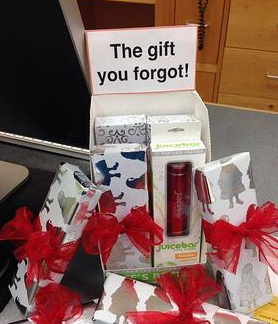
Today, every stage of a product lifecycle can be tracked and shared using smart sensors and blockchain technology. This level of monitoring has clear advantages for manufacturers: Full traceability improves the customer experience and product quality and enables manufacturers to quickly and efficiently remove products in the event of tampering, contamination or quality issues.
There are also additional benefits when this detailed product information is shared with ERP systems. By accessing, integrating and processing this information, ERP systems can become digital business management platforms capable of leveraging product information to improve customer service and introduce new efficiencies into the supply chain.
Smart packaging and smart sensors
Today with smart packaging, labels are embedded with sensors that monitor physical changes and environmental conditions that could indicate that a product is damaged. For example, Johnnie Walker’s labels have embedded wireless communications enabling customers to confirm the bottle is properly sealed by scanning a code using their smartphones.
Smart labels are also used to indicate product freshness beyond unreliable “buy by” expiration dates. Freshcode provides a visual indicator of the real freshness of packaged chicken breasts; by integrating information about product freshness, ERP systems can notify suppliers when there are quality issues, and reduce waste by identifying optimal storage and delivery mechanisms to ensure product quality.
Smart packaging is also enabling buyers to scan items in the store and automatically pay without waiting in a checkout line. This added convenience for customers can be a tremendous differentiator for retail stores.
The detailed purchase information when fed into ERP systems is also extremely powerful to generate customer profiles, forecast demand, to help identify opportunities to upsell, and to generate regional and personalized marketing campaigns.
RJ Corp, the largest bottler of Pepsi in India, uses IoT sensors to assess product quality on a real-time basis. Any measurements that indicate that there may be a quality problem can halt manufacturing processes so that corrective action can be taken.
By integrating IoT tracking systems with ERP systems, companies can automatically order replacement materials and parts if necessary, schedule the required field technicians and notify other processes and partners of possible delays.
Blockchain Tracking
Blockchain enables manufacturers and retailers to track products and their ingredients backwards and forwards through the supply chain. Every time an entity, including factories, distributors, shippers, warehouses and retail stores, log a transaction related to an item, such as a product being placed on the shelf, all the data points are linked together to form a chain and copies of this data appear across multiple devices.
Spinosa S.P.A. a manufacturer of buffalo mozzarella, has put in place a process of blockchain technology that tracks products from the farm to the table. Each stage of the production chain is monitored, communicated and tracked.
Eight tons of Vietnamese mangoes have reached the U.S. market with every single mango tracked using blockchain technology. By feeding information about product movements into the ERP system, immediate steps can be taken in the event of contamination, including identifying all products, stores, and consumers who might be impacted.
Blockchain is also being piloted by the pharmaceutical industry as a solution to track and trace the drugs they manufacture and ship. By 2023, the DQSA Drug Quality Security Act (DQSA) will require an electronic interoperable system that can pass serial numbers between trading partners. Making this data transparent to the ERP system helps react quickly in the event there is a product recall, including all products that include a particular material, and all products that are marketed under a different name.
ERP integrated with traceability technology is a powerful tool to ensure product safety and introduce supply chain efficiencies. Although some more advanced technologies such as smart packaging and blockchain are still being developed, is it certain will be used more widely to meet regulations.

